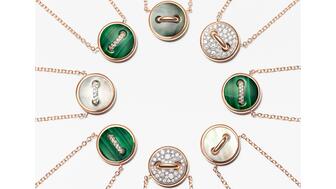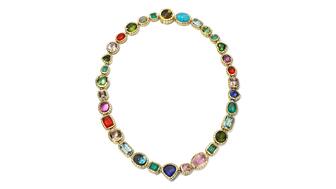Padis succeeds Lisa Bridge, marking the first time the organization has had two women board presidents in a row.
Exploitation and responsibility
It wasn't long ago that Americans were exploited by Europe for our rich natural resources. In the heyday of colonialism, it was standard operating procedure for powerful nations to divvy up the world and its spoils, with little interest in...
It wasn't long ago that Americans were exploited by Europe for our rich natural resources. In the heyday of colonialism, it was standard operating procedure for powerful nations to divvy up the world and its spoils, with little interest in the well-being of the peoples they dominated.

Unfortunately, the lust for gold and exploitation of weaker countries for their resources—whether gold, diamonds or other commodities—by the powerful remains alive and well. It's an abhorrent aspect of modern civilization that we as individuals, not to mention as an industry, should deplore and condemn.
Our industry's movement toward "fair trade" gold and "conflict-free" gemstones should be applauded as a first step. But it remains woefully short of a fully acceptable solution. Recent political developments such as African "benefication" show that those in exploited areas are wising up. They won't be as easily duped as they've been, allowing developed nations to walk in and walk off with their riches.
Rectifying conditions between developing and developed nations is a difficult and case-by-case process. The current turmoil in Libya is an example. That country's rich oil reserves are of globally strategic importance, as witnessed in the chaos last week in equities markets. But even in a world marked by America's Wilsonian propensity toward interventionist policing of the internal affairs of sovereign states when our interests are at stake, international politics and relations mandate a cautious approach to such powers.
Exploitation, however, doesn't always take the form of intervention. Indeed, it much more commonly involves commercial dealings that may be prima facie acceptable to both buyers and sellers. That, of course, does not make such dealings morally appropriate.
While there are certainly circumstances that are of such gravity that they have the ability to affect global well-being, such as arms limitations and flow of free trade, etc., down-low patronizing of commerce that supports human rights violations is simply wrong. The fine jewelry trade needs to retain a focused vigilance on the sourcing of its component metals and gemstones
The Latest

The Royal Oak Perpetual Calendar "John Mayer" was celebrated at a star-studded party in LA last week.

The announcement came as the company reported a 23 percent drop in production in Q1.

With Ho Brothers, you can unlock your brand's true potential and offer customers the personalized jewelry experiences they desire.

The three-time Pro Bowler continues to partner with the retailer, donating to a Detroit nonprofit and giving watches to fans.


A double-digit drop in the number of in-store crimes was offset by a jump in off-premises attacks, JSA’s 2023 crime report shows.

Inspired by the Roman goddess of love, the designer looked to the sea for her new collection.

For over 30 years, JA has advocated for the industry, fought against harmful legislation and backed measures that help jewelry businesses.

The luxury titan posted declining sales, weighed down by Gucci’s poor performance.

The selected nine organizations have outlined their plans for the funds.

The mining company’s Diavik Diamond Mine lost four employees in a plane crash in January.

The crown introduced a dozen timepieces in Geneva, including a heavy metal version of its deep-sea divers’ watch.

Emmanuel Raheb recommends digging into demographic data, customizing your store’s communications, and retargeting ahead of May 12.

Located in the town of Queensbury, it features a dedicated bridal section and a Gabriel & Co. store-in-store.

A 203-carat diamond from the alluvial mine in Angola achieved the highest price.

Ruser was known for his figural jewelry with freshwater pearls and for his celebrity clientele.

The “Rebel Heart” campaign embodies rebellion, romance, and sensuality, the brand said.

The overhaul includes a new logo and enhanced digital marketplace.

The money will go toward supporting ongoing research and aftercare programs for childhood cancer survivors.

A new addition to the “Heirloom” collection, this one-of-a-kind piece features 32 custom-cut gemstones.

Last month in Dallas, David Walton pushed another jeweler, David Ettinger, who later died.

The move will allow the manufacturing company to offer a more “diverse and comprehensive” range of products.

From now through mid-May, GIA will be offering the reports at a 50 percent discount.

De Beers’ rough diamond sales were down 18 percent year-over-year in its latest round of sales.


Sponsored by the Las Vegas Antique Jewelry & Watch Show

The Patek Philippe expert will serve as personal curator for the brand-focused company.

The 553-square-foot shop is aboard the Carnival Jubilee cruise ship.





























